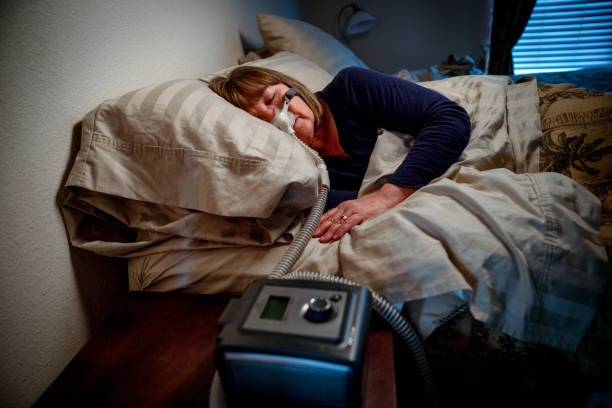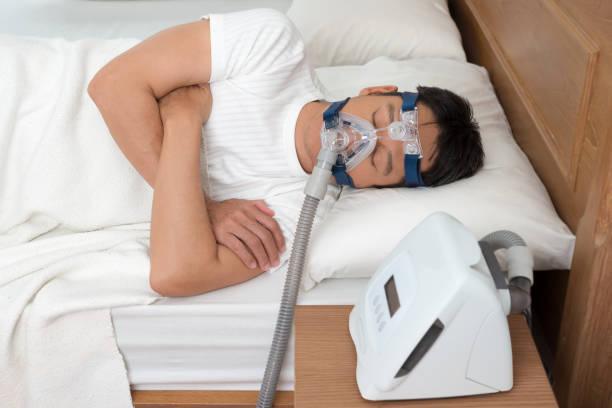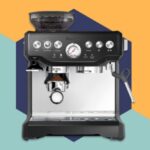The quality of the water you use affects the safety of your CPAP machine. Microbes, minerals, and chemical pollutants may be present in tap water.
Microbes can be killed by boiling water. However, boiling does not remove minerals or chemical impurities.

Hard water is caused by minerals such as calcium, magnesium, and iron. If they get into the water in your humidifier, they will generate a buildup of mineral deposits known as scale. This might cause the equipment to malfunction.
Some minerals can be removed via filtering. However, it may not eliminate microorganisms or other chemicals. The safest alternative is to drink bottled, distilled water.
Mineral deposits are prevented by using distilled water.This increases the lifespan of the water tub. Even so, you’ll need to change the water tub every six months or so. As a result, extending the life of the water tub may be less necessary.
It is acceptable to clean your CPAP machine using tap water on occasion.
The Advantages of Using a CPAP Humidifier
The constant flow of air from a CPAP machine might seem drying. Some CPAP users have nose and throat discomfort, including nose bleeds, sinus congestion, and dry mouth. A CPAP humidifier adds water to pressured air to enhance humidity and make CPAP breathing more pleasant.
If you use a CPAP machine and wake up with dry breathing passages on a regular basis, you should think about adding a humidifier to your CPAP setup. It is also vital to clean your CPAP machine on a regular basis, including the mask and other device components.
Why Should You Use Distilled Water in Your CPAP Machine?
While tap water is convenient and may seem enticing to use in your CPAP humidifier, it may include mineral deposits and other chemicals that might damage your machine or result in potentially hazardous bacterial growth.
Bottled water alternatives can be classified into the following categories:
Most bottled water is purified, which means it has been filtered to eliminate contaminants, though it may still include some mineral content4. The majority of filtered drinking water offered in supermarkets is derived from municipal tap water.Some manufacturers use a reverse osmosis technique to remove pollutants and bacteria by forcing water through a semipermeable membrane under pressure. Bottled water generated by these processes is frequently remineralized to offer healthy minerals for consumption.
- Spring water: Spring water is generally rich in minerals since it comes from aquifers and is naturally filtered underground before reaching an above-ground spring. Artesian water is comparable to spring water, except it originates from an aquifer via an artesian well.
- Mineral water: To be marketed as such, mineral water sold in the United States must come from an underground water source and have a minimum quantity of total dissolved solids.
- Distilled water: The cleanest form of bottled water and is made by boiling water and then condensing the vapor back into liquid form.
Because it is pure water that is devoid of minerals and germs, distilled water is the finest choice for CPAP humidifiers. Because it avoids limescale formation on instruments, hospitals, labs, and industries frequently utilize distilled water instead of tap water.
The use of the incorrect type of water in your CPAP humidifier might result in mineral accumulation, scaling, or bacterial development. It might also irritate your airways or cause your machine or its components to fail.
Why Can’t You Use Tap Water in Your CPAP Humidifier?
While most nations purify tap water for public use, it may still include trace contaminants such as mineral deposits, bacteria, and chemicals that you don’t want to breathe in. Different states in the United States, as well as distinct nations across the world, have different legislation. These impurities can also accumulate on your supplies over time, causing harm to your CPAP tubing and motor. Only distilled water should be placed in the water chamber for use. In short, distilled water is superior to purified water in terms of both health and the lifetime of your CPAP equipment.
When filling your humidifier chamber, keep in mind that even boiling your tap water will not entirely remove minerals or chemical impurities, but it can kill germs. The water will still be ‘hard,’ including minerals such as calcium, iron, magnesium, and others.
Filtered or bottled water may not contain as many minerals, but it is also not completely devoid of harsh chemicals or bacteria.
Distilled water is the finest option for keeping your equipment working at peak efficiency. If you have previously used tap water for your CPAP humidification, immerse the water tub in white vinegar to eliminate any buildup and carefully rinse before using it again. Remember, only distilled water from now on!
What Kind of Water Should You Drink While Traveling?
When traveling in places with low water quality, fill your humidifier with distilled water. If the water is unsafe to drink, it is also unsafe to use in your CPAP humidifier. In this scenario, using distilled water reduces your exposure to potentially dangerous contaminants.
For example, a few persons in Louisiana who drank tap water in Neti pots suffered a rare amoebic brain illness. This illness is virtually invariably deadly, and therapy is practically never beneficial.
The use of a CPAP humidifier has not been shown to pose the same danger.
Nonetheless, it demonstrates how hazardous microorganisms may occasionally be detected in tap water.

Conclusion
Using the humidifier in your CPAP machine might help avoid nose and sinus issues.
Some tap water may be okay to use in your CPAP humidifier, but distilled water is the safest option. Tap water may include minerals that will accumulate within your equipment. It might potentially include harmful germs and chemicals.
Avoid putting fragrances or scented oils in your humidifier’s water. When cleaning your equipment, avoid using aggressive cleaning products.
When visiting locations with contaminated water, only use distilled water.











